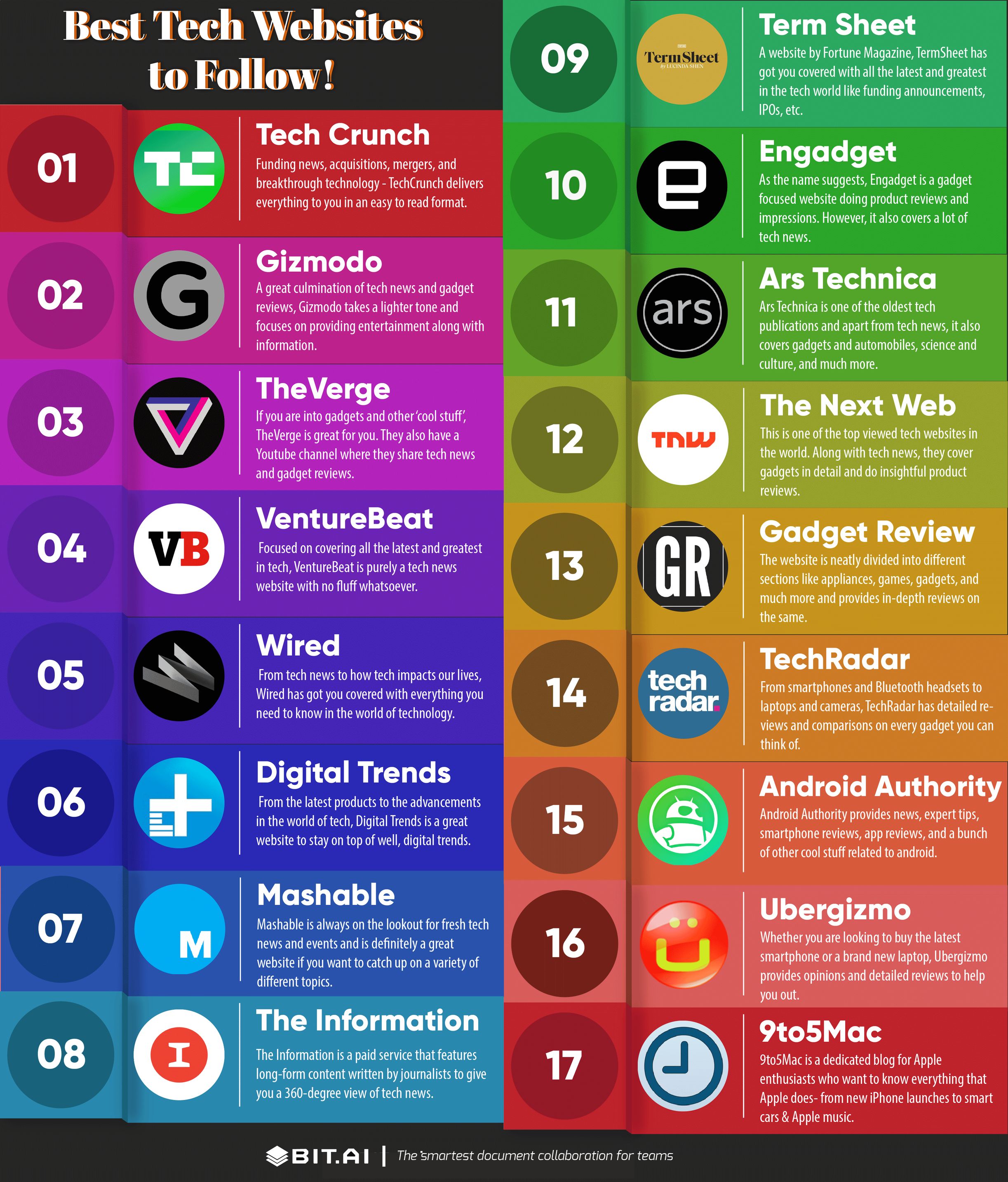Why the Best tech blog is Your Best Resource for Expert Reviews and Insights
Why the Best tech blog is Your Best Resource for Expert Reviews and Insights
Blog Article
Exactly How Blockchain Technology Is Revolutionizing Data Safety And Security
Blockchain innovation is essentially changing the landscape of data safety and security by introducing a decentralized structure that assures enhanced transparency and durability. Unlike standard systems, which count on centralized information databases, blockchain distributes data across a network, reducing susceptabilities and solitary points of failing. Making use of innovative cryptographic techniques makes certain that data remains tamper-proof, fostering depend on among stakeholders and individuals. As industries swiftly adjust to this modern technology, inquiries occur about its wider impact and possible challenges. What implications does this change hold for future data security strategies and governing structures? The solutions may surprise you (Best tech blog).
The Fundamentals of Blockchain
Blockchain innovation, an advanced principle in electronic information administration, basically transforms how information is stored and protected. At its core, a blockchain is a dispersed ledger that tapes deals throughout a network of computers, ensuring transparency and immutability.
Key to recognizing blockchain is the hashing process, which secures deal data right into an one-of-a-kind alphanumeric code. This cryptographic function guarantees that any kind of modification in the purchase information leads to a completely various hash, consequently guarding against tampering. The consensus mechanism, another important part, validates and confirms new deals with a network of nodes, thus getting rid of the requirement for a centralized authority.
Moreover, blockchain's append-only framework ensures that information, as soon as included, can not be removed or modified. This characteristic assurances a long-term and verifiable record of purchases, promoting trust among individuals. Therefore, blockchain supplies a robust framework for data integrity, providing sectors a reliable technique for tracking and managing digital info in a safe, transparent way.
Decentralization and Protection
Decentralization, a core concept of blockchain innovation, substantially boosts information security by distributing control throughout a network instead of depending on a single, central entity. This distribution reduces the risk of solitary factors of failing, which are prevalent in traditional central systems. By dispersing information throughout various nodes, blockchain makes certain that even if one node is compromised, the entire network stays protected. This redundancy not just strengthens the integrity of the information however also enhances its durability to cyberattacks and system failings.

Additionally, decentralization encourages individuals with greater control over their data. Each participant in the network has accessibility to the whole blockchain, permitting them to verify and examine transactions individually. This openness promotes trust fund among individuals, as they do not have to count on a main authority to guarantee information stability. Generally, decentralization is critical in enhancing data security in blockchain networks.

Cryptographic Methods
At the heart of blockchain innovation, cryptographic techniques play a critical role in securing data, guaranteeing both confidentiality and honesty. Cryptography in blockchain employs a combination of asymmetric and symmetrical formulas to secure data, making it easily accessible just to accredited events.
Hash functions are one more critical element, transforming input data right into a fixed-size string of personalities, efficiently creating an one-of-a-kind electronic fingerprint for each block. This makes sure that any type of attempt to alter the data will certainly cause an entirely various hash, thus keeping the immutability of the blockchain. In addition, electronic trademarks confirm the credibility and integrity of deals, providing a layer of non-repudiation.
The decentralized nature of blockchain, important link combined with durable cryptographic methods, removes the demand for middlemans, reducing prospective susceptabilities. As blockchain innovation progresses, advancements in cryptography such as zero-knowledge evidence and homomorphic encryption continue to improve security actions, additionally strengthening information security in this innovative digital ledger system.
Use Cases Throughout Industries

In the healthcare sector, blockchain ensures the safe storage and sharing of client documents, promoting interoperability while securing delicate data from unapproved gain access to. This technology encourages people with control over their case history and helps with seamless sychronisation among healthcare suppliers.
Supply chain administration benefits dramatically from blockchain's unalterable ledger, which makes sure traceability and authenticity of items from origin to consumer. By enhancing openness, blockchain assists mitigate problems such as counterfeiting and underhanded sourcing.
In addition, blockchain's decentralized nature is reshaping the energy field by making it possible for peer-to-peer energy trading, where customers can deal excess renewable resource directly. This cultivates a more sustainable and reliable power ecological community.
In the world of intellectual home, blockchain provides a tamper-proof system for designers to register and safeguard their jobs, making certain rightful acknowledgment and reasonable settlement. These diverse use instances underscore blockchain's duty as a pivotal force in redefining data protection across industries.
Future of Information Protection
As we seek to the future of information security, blockchain modern technology is poised to play a crucial role in safeguarding electronic info. With its decentralized and immutable features, blockchain supplies a robust framework for safeguarding delicate information versus unapproved access and cyber hazards. This modern technology guarantees that when information is taped, it is almost difficult to change without discovery, thus giving a significant advantage over standard information storage techniques.
The integration of blockchain with other advanced modern technologies, such as synthetic intelligence and the Web of Things (IoT), is anticipated to enhance information defense techniques further. By leveraging smart contracts, companies can automate and apply protection methods, decreasing human mistake and raising efficiency. In addition, blockchain's capability to supply transparent and traceable deals will reinforce count on and responsibility in information monitoring techniques.
As governing landscapes advance, blockchain's compliance-friendly nature will certainly become increasingly pertinent. It can aid companies fulfill rigorous information security laws, such as the General Data Protection Guideline (GDPR) and the California Consumer you can try this out Privacy Act (CCPA), by supplying verifiable records of information processing tasks. Eventually, blockchain's unique features placement it as a transformative tool in the recurring pursuit to protect the electronic globe versus ever-evolving cyber risks.
Verdict
Blockchain modern technology represents a paradigm change in data safety and security by leveraging decentralization and cryptographic strategies to enhance openness, count on, and data honesty. As cyber dangers evolve, blockchain see this here emerges as a vital device for robust data defense throughout different sectors.
Blockchain modern technology is fundamentally changing the landscape of data protection by introducing a decentralized framework that promises boosted transparency and strength. Unlike conventional systems, which depend on centralized information repositories, blockchain distributes data throughout a network, decreasing susceptabilities and solitary factors of failure.Decentralization, a core concept of blockchain modern technology, considerably improves information safety by distributing control across a network instead than depending on a singular, central entity.At the heart of blockchain technology, cryptographic strategies play an essential role in protecting information, guaranteeing both privacy and honesty.Blockchain modern technology stands for a standard change in data security by leveraging decentralization and cryptographic techniques to boost openness, trust, and information honesty.
Report this page